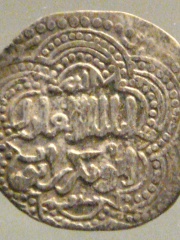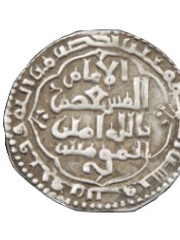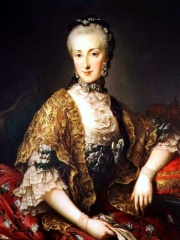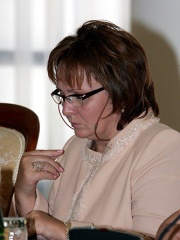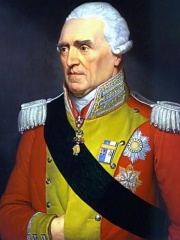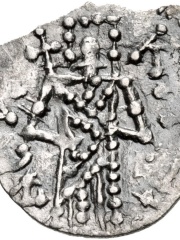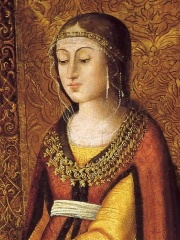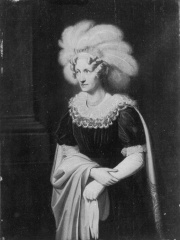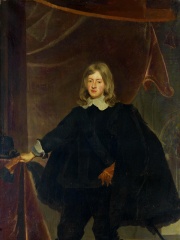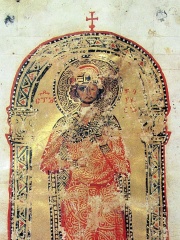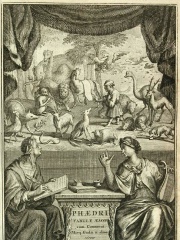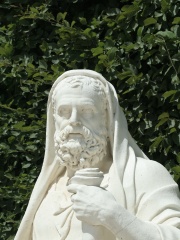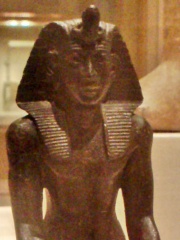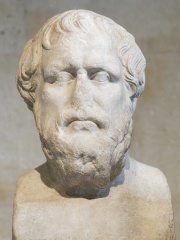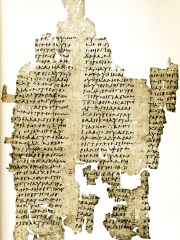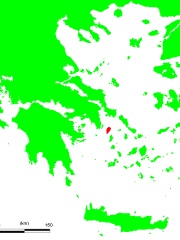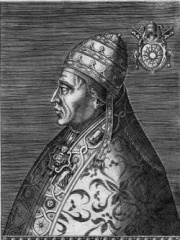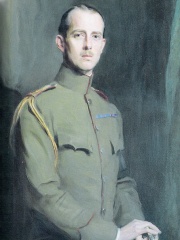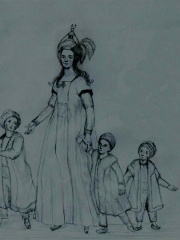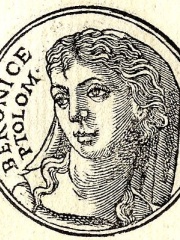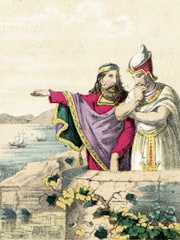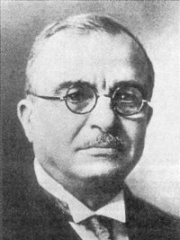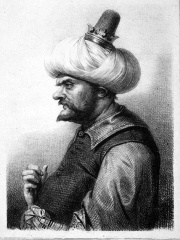POLITICIAN
Nestor
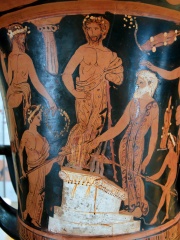
 Nestor
Nestor
In Greek mythology, Nestor of Gerenia (Ancient Greek: Νέστωρ Γερήνιος, Nestōr Gerēnios) was a legendary king of Pylos. He is a prominent secondary character in Homer's Iliad and Odyssey, where he appears as an elderly warrior who frequently offers advice to the other characters. The Mycenaean-era palace at Pylos is known as the Palace of Nestor, though there is no evidence that he was an actual person. Read more on Wikipedia
His biography is available in 48 different languages on Wikipedia (up from 47 in 2024). Nestor is the 1,826th most popular politician (down from 1,217th in 2024), the 131st most popular biography from Greece (down from 101st in 2019) and the 46th most popular Greek Politician.
Nestor is most famous for his role in the Trojan War. Nestor was a wise and respected king of Pylos. He was one of the few Achaean leaders to survive the Trojan War. What is the first thing that comes to mind when you think of Odysseus? The first thing that comes to mind when I think of Odysseus is that he is a hero who is known for his cunning and intelligence.
Memorability Metrics
Page views of Nestor by language
Among POLITICIANS
Among politicians, Nestor ranks 1,826 out of 19,576. Before him are Al-Adil I, Hibatullah Akhundzada, Al-Musta'sim, Archduchess Maria Anna of Austria, Lyudmila Putina, and Frederick Augustus I of Saxony. After him are Matthew Kantakouzenos, Catherine of Navarre, Maria Theresa of Austria, Ferdinand IV, King of the Romans, Boris I of Bulgaria, and Glycerius.
Most Popular Politicians in Wikipedia
Go to all RankingsAl-Adil I
1145 - 1218
HPI: 72.75
Rank: 1,821
Hibatullah Akhundzada
1961 - Present
HPI: 72.74
Rank: 1,822
Al-Musta'sim
1213 - 1258
HPI: 72.74
Rank: 1,823
Archduchess Maria Anna of Austria
1738 - 1789
HPI: 72.74
Rank: 1,824
Lyudmila Putina
1958 - Present
HPI: 72.74
Rank: 1,825
Frederick Augustus I of Saxony
1750 - 1827
HPI: 72.73
Rank: 1,826
Nestor
HPI: 72.73
Rank: 1,827
Matthew Kantakouzenos
1325 - 1383
HPI: 72.73
Rank: 1,828
Catherine of Navarre
1470 - 1517
HPI: 72.72
Rank: 1,829
Maria Theresa of Austria
1767 - 1827
HPI: 72.72
Rank: 1,830
Ferdinand IV, King of the Romans
1633 - 1654
HPI: 72.71
Rank: 1,831
Boris I of Bulgaria
828 - 907
HPI: 72.71
Rank: 1,832
Glycerius
430 - 480
HPI: 72.70
Rank: 1,833
In Greece
Among people born in Greece, Nestor ranks 131 out of 1,024. Before him are Phaedrus (-20), Lysias (-445), Ictinus (-500), Necho II (-625), Katerina Sakellaropoulou (1956), and Pittacus of Mytilene (-650). After him are Matthew Kantakouzenos (1325), Antiphon (-480), Prodicus (-460), Antipope Alexander V (1339), Agesilaus II (-444), and Prince Andrew of Greece and Denmark (1882).
Others born in Greece
Go to all RankingsPhaedrus
WRITER
20 BC - 50
HPI: 72.90
Rank: 125
Lysias
WRITER
445 BC - 380 BC
HPI: 72.87
Rank: 126
Ictinus
ARCHITECT
500 BC - Present
HPI: 72.84
Rank: 127
Necho II
POLITICIAN
625 BC - 595 BC
HPI: 72.82
Rank: 128
Katerina Sakellaropoulou
POLITICIAN
1956 - Present
HPI: 72.81
Rank: 129
Pittacus of Mytilene
MILITARY PERSONNEL
650 BC - 570 BC
HPI: 72.77
Rank: 130
Nestor
POLITICIAN
HPI: 72.73
Rank: 131
Matthew Kantakouzenos
POLITICIAN
1325 - 1383
HPI: 72.73
Rank: 132
Antiphon
POLITICIAN
480 BC - 411 BC
HPI: 72.65
Rank: 133
Prodicus
PHILOSOPHER
460 BC - 380 BC
HPI: 72.63
Rank: 134
Antipope Alexander V
RELIGIOUS FIGURE
1339 - 1410
HPI: 72.58
Rank: 135
Agesilaus II
POLITICIAN
444 BC - 360 BC
HPI: 72.50
Rank: 136
Prince Andrew of Greece and Denmark
POLITICIAN
1882 - 1944
HPI: 72.47
Rank: 137
Among POLITICIANS In Greece
Among politicians born in Greece, Nestor ranks 46. Before him are Mahfiruz Hatun (1590), Berenice I of Egypt (-340), Polycrates (-600), Critias (-460), Necho II (-625), and Katerina Sakellaropoulou (1956). After him are Matthew Kantakouzenos (1325), Antiphon (-480), Agesilaus II (-444), Prince Andrew of Greece and Denmark (1882), Ioannis Metaxas (1871), and Oruç Reis (1473).
Mahfiruz Hatun
1590 - 1620
HPI: 73.55
Rank: 40
Berenice I of Egypt
340 BC - 268 BC
HPI: 73.40
Rank: 41
Polycrates
600 BC - 515 BC
HPI: 73.36
Rank: 42
Critias
460 BC - 403 BC
HPI: 73.26
Rank: 43
Necho II
625 BC - 595 BC
HPI: 72.82
Rank: 44
Katerina Sakellaropoulou
1956 - Present
HPI: 72.81
Rank: 45
Nestor
HPI: 72.73
Rank: 46
Matthew Kantakouzenos
1325 - 1383
HPI: 72.73
Rank: 47
Antiphon
480 BC - 411 BC
HPI: 72.65
Rank: 48
Agesilaus II
444 BC - 360 BC
HPI: 72.50
Rank: 49
Prince Andrew of Greece and Denmark
1882 - 1944
HPI: 72.47
Rank: 50
Ioannis Metaxas
1871 - 1941
HPI: 72.44
Rank: 51
Oruç Reis
1473 - 1518
HPI: 72.43
Rank: 52
